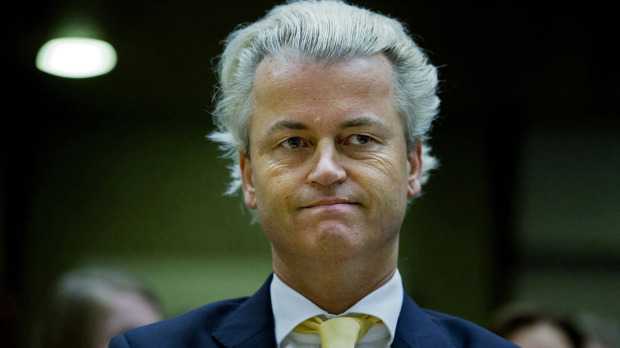There was a deafening silence at the dinner party in Istanbul’s trendy Cihanger district last Friday night. The half dozen guests abruptly stopped talking when a new guest arrived and announced what had happened in Norway. The first question asked hinted at the fear that filled the room: “Was it a Muslim?”

Geert Wilders: Academics studying Islamic radicalization warn that the success of the extreme right in Europe is a bad sign of things to come
Robin Utrecht/Pool/AP
At the time, the answer was still unknown. But, according to the messenger, this was what all the newspaper reports were saying: A bomb had gone off in the heart of Oslo and, said the “experts,” the likely culprits were Islamic extremists. “But is there any proof?” another guest asked. There was none, of course, and this fact ignited an intense debate over media responsibility, Islamophobia and the future of Islam in Europe.
A day later, when it emerged that the suspect in the attack was a not a Muslim, my Turkish friends and colleagues breathed a collective sigh of relief. But solace turned to anger at the Western media for initially speculating on jihadist motivations for attacking Norway. That their speculation was wrong is little consolation to Muslims in Turkey. The damage is done, they say. The dark heart of the West is revealed: If there’s a violent attack, the West seems reflexively prepared to blame it on those crazy Muslims.
Linking acts of terrorism with Islam has become trope to the 21st-century journalistic tragedians. But there’s a larger narrative. The emerging portrait of Anders Behring Breivik, the man in custody for carrying out both the bombing and the shooting rampage at a youth camp, reveals a man deeply immersed in hate. Writings found at his home and posted on the Internet are a profile of a violent psyche awaiting a trigger to act.
Those triggers are plentiful in Europe these days. The alarming pace at which Islamic and Christian right-wing verbal clashes have escalated has set the stage for the violent fringe to justify their murderous outbursts. And the rhetoric has reached dizzying heights. Geert Wilders, the Dutch politician recently acquitted on charges of inciting hatred, is warning that a “tsunami of Islamification” is threatening the Netherlands. One of his party’s key demands – one that Mr. Breivik has voiced – is an end to immigration, particularly Islamic immigration. He goes so far as to propose that Dutch Muslims who don’t “assimilate” be stripped of their citizenship and thrown out of the country.
European Muslims have confessed their growing frustration with politicians such as Mr. Wilders, as well as their fears that the confrontational atmosphere will lead to more violence. Academics studying Islamic radicalization also warn that the success of the extreme right in Europe is a bad sign of things to come.
“It’s a self-propelled spiral into confrontation and violence,” Markha Valenta, a researcher in history at the University of Amsterdam, told me. “Study after study shows that violent extremism – Christian or Islamic – begins with words and the environment words create. In Europe, the discourse between Muslims and non-Muslims has shifted into a dark place. We need to quickly reverse that trend or face the consequences.”
Norway’s response to Friday’s events is a first step. Prime Minister Jens Stoltenberg’s promise to use the aftermath as motivation to promote “more democracy, more openness, and more humanity” sends the right message: Extremists can’t hijack the discourse. Muslims will have to play their part: It’s incumbent on them to reach out to Europe’s moderate majority, share in their suffering, and confront the violent fringe with a united front.
Adnan Khan is a writer and photographer based in Islamabad.
via In Norway, a trigger for discourse – The Globe and Mail.

Leave a Reply